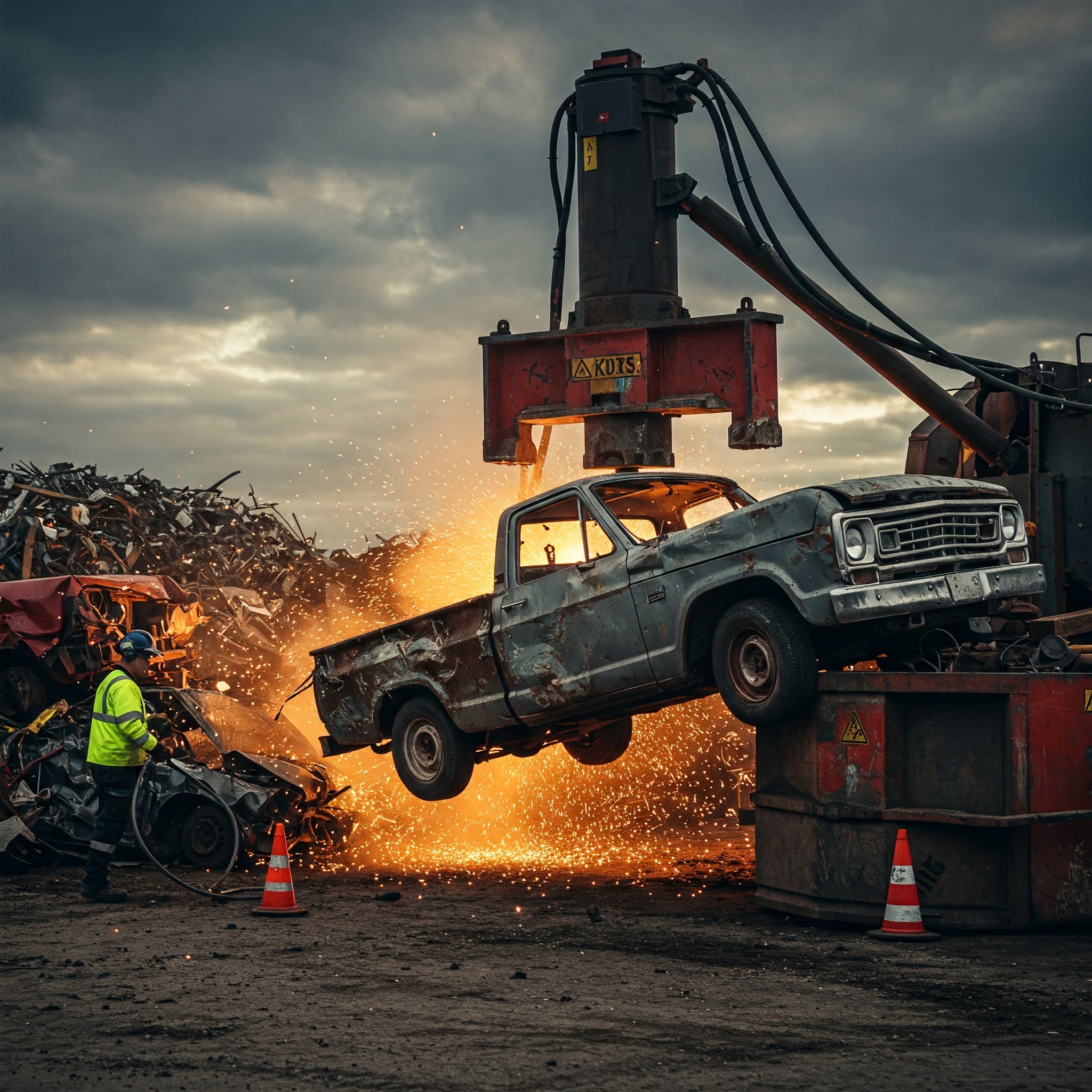Ultimate Guide to Disposal of Vehicle in Australia: Methods, Costs & Regulations.
Introduction
Disposing of an old or unwanted vehicle in Australia involves several legal, environmental, and financial considerations. Whether you want to scrap your car, sell it for parts, or recycle it, this guide provides everything you need to know about the disposal of vehicle in Australia.
Understanding Vehicle Disposal in Australia
Disposing of a vehicle refers to the process of legally and safely removing it from circulation. This can involve scrapping, recycling, selling, or donating the vehicle.

Legal Requirements for Vehicle Disposal
- Deregistration from the Department of Transport
- Proper documentation including proof of ownership
- Compliance with local council and environmental regulations
Reasons for Disposing of a Vehicle
- End-of-life vehicles (ELVs)
- Accident-damaged cars
- Old and non-functional cars
- Upgrading to a new vehicle
Methods for Vehicle Disposal in Australia
- Selling to a scrapyard
- Trading with a car wrecker
- Recycling the vehicle
- Donating to charity
- Private selling for parts
Environmental Impact of Vehicle Disposal
Improper vehicle disposal can lead to:
- Soil and water contamination
- Air pollution from toxic emissions
- Waste accumulation in landfills
Opting for environmentally friendly disposal methods ensures sustainability.
How to Deregister Your Vehicle Before Disposal
- Contact the state’s transport authority (e.g., VIC Roads, NSW Transport)
- Submit the necessary forms and identification
- Remove number plates and return them to the authority
Selling Your Car to a Wrecker
Car wreckers dismantle vehicles, salvaging usable parts and recycling the rest. Top benefits include:
- Instant cash for your car
- Eco-friendly disposal
- Free towing services in most cases
How to Scrap a Car in Australia
- Choose a licensed scrapyard
- Get a valuation for the scrap metal
- Arrange for pickup or drop-off
- Receive payment and completion certificate
Vehicle Recycling: A Greener Alternative
Vehicle recycling involves recovering materials such as:
- Steel and aluminum
- Batteries
- Tires and plastics
This method significantly reduces waste and supports sustainable resource use.
Costs Associated with Vehicle Disposal
- Scrapyards often offer free disposal but may charge for towing
- Some disposal methods may involve deregistration fees
- Private towing services may cost $50-$150
Can You Sell a Vehicle Without a Title in Australia?
While some wreckers may accept vehicles without a title, having proper documentation ensures a smoother transaction.
How Long Does Vehicle Disposal Take?
The process can take anywhere from a few hours to a couple of days, depending on the chosen method.
Best Places for Vehicle Disposal in Major Cities
- Sydney: Zero Waste Services, Sydney Car Recyclers, Metal Force Recycling
- Melbourne: Zero Waste Services, Metro Car Removal, Vic Metal Recyclers
- Brisbane: QLD Cash for Cars, Brisbane Car Wreckers
- Canberra: Zero Waste Services,
What Happens to a Car After Disposal?
After disposal, cars are usually:
- Stripped for usable parts
- Crushed and shredded
- Recycled into new products
Can You Donate a Car in Australia?
Yes, charities such as Kids Under Cover and Caritas Australia accept vehicle donations, often offering tax benefits.
Risks of Improper Vehicle Disposal
- Legal fines for abandoning a car
- Environmental hazards
- Loss of potential resale value
Government Regulations on Car Disposal
Australia has strict ELV (End-of-Life Vehicle) guidelines ensuring responsible vehicle disposal and recycling.
Tips for Getting the Best Value When Disposing of a Vehicle
- Get multiple quotes from wreckers and scrap dealers
- Sell usable parts separately for higher returns
- Ensure proper documentation to avoid penalties
FAQs About Vehicle Disposal in Australia
Q1: How much can I get for scrapping my car?
A: Scrap value varies between $100-$1,000 based on weight, model, and condition.
Q2: Is it illegal to abandon a vehicle in Australia?
A: Yes, abandoned vehicles can lead to hefty fines and legal consequences.
Q3: Can I dispose of a vehicle without registration?
A: Yes, but deregistration and proof of ownership are still required.
Q4: Where can I check the legal status of my car before disposal?
A: Use the Personal Property Securities Register (PPSR) to check outstanding loans or encumbrances.
Q5: What should I do with my car’s number plates before disposal?
A: Remove the plates and return them to your local transport authority.
Q6: Do I need to notify my insurance provider after disposing of my car?
A: Yes, you should inform your insurance provider to cancel your policy and avoid unnecessary charges.
Q7: What happens if I dispose of my vehicle without deregistering it?
A: You may still be held responsible for any fines or violations linked to the vehicle.
Q8: Can I get a refund for my car’s registration after disposal?
A: In some states, you may be eligible for a refund of the remaining registration period upon deregistration.
Q9: What documents do I need for vehicle disposal?
A: Generally, you need proof of ownership, vehicle registration documents, and a photo ID.
Q10: Can I sell parts of my car before disposing of it?
A: Yes, selling valuable parts like the battery, tires, and catalytic converter can increase your total earnings.
Conclusion
Proper disposal of vehicle in Australia ensures environmental sustainability, legal compliance, and potential financial benefits. Whether recycling, scrapping, or selling, choosing a responsible method is essential.
Call to Action
Looking for hassle-free vehicle disposal? Contact Us